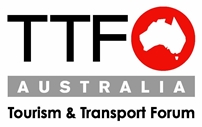On Wednesday we saw NSW take home the Origin Trophy and seeing Boyd Cordner the Captain of the Blues lift the Shield in front of a packed stadium of more than 82,000 people was amazing.
The entire night from start to finish was edge of your seat entertainment and to be there live to see it all play out was an absolute treat.
From the incredible number of Blatchys Blues, to the Queensland supporters to Guy Sebastian performing at his best and that’s before we even got to the game. It truly was non-stop entertainment.
The final decider and the whole Origin series has been a win-win for the visitor economy.
NSW saw an estimated 24,000 visitors from interstate and regional NSW flocking to Sydney for the series decider, generating approximately $17 million in tourism-related expenditure.
What I was able to see was the sheer number of people who came together to make sure an event like Origin was a success, and the 2019 series meant success for everyone.
Major sporting events like Origin naturally increase the pulse-rates of fans but what we also know is that these occasions have a wider economic impact that goes well beyond the final siren.
Events are important motivators of tourism expenditure, and they greatly influence the development of a destination.
Their roles and impacts within tourism are well documented in tourism media. Yet it feels like it was only a few decades ago that “event tourism” became established as an independent discipline in both the tourism industry and in the research community.
While Wednesday night’s focus was around the sporting codes benefiting from such events, it is so important to pull back and look at the impact they also have on the staff pulling the beers and selling the pies and the security checking your ticket at the stadium.
From pub and restaurant staff, to aviation, hotel workers and event staff, each of these groups play a major role in the delivery of these events.
A recent TTF Survey in collaboration with Nielsen Data shows that when it comes to attending major events, sporting events come in as the number one choice.
Those interviewed also recognised the importance of major events with 54% believing that the most important outcome from events is that “it brings jobs and money to my state”.
While 50% of those surveyed also called for both the state and federal governments to invest more to attract and hosting more major events.
The more events, the more work, the better the economy and when talking about this it is important to recognise the impact on the everyday Aussies as well.
In NSW alone tourism employs 171,000 people and contributes to $17.3 billion in direct Gross State Product (GSP) to the NSW economy and generates $40.5 billion of consumption spending.
State of Origin II hosted in Perth was also recently declared an economic success with more than 12,000 interstate fans jetting into Optus Stadium which generated a $15 million windfall.
Events continue to be an important motivator of tourism, and they greatly influence the development of a destination and what they deliver are part of Australia’s economic fabric.
From what I saw on Wednesday night and many times before, it is incredibly important that as an industry we continue to make sure that the government considers what major events deliver to the economy from all levels, especially when it comes to investment and long-term sustainability.
And next?
Sorry, but bring on Origin 2020 for another amazing NSW/Queensland clash!

